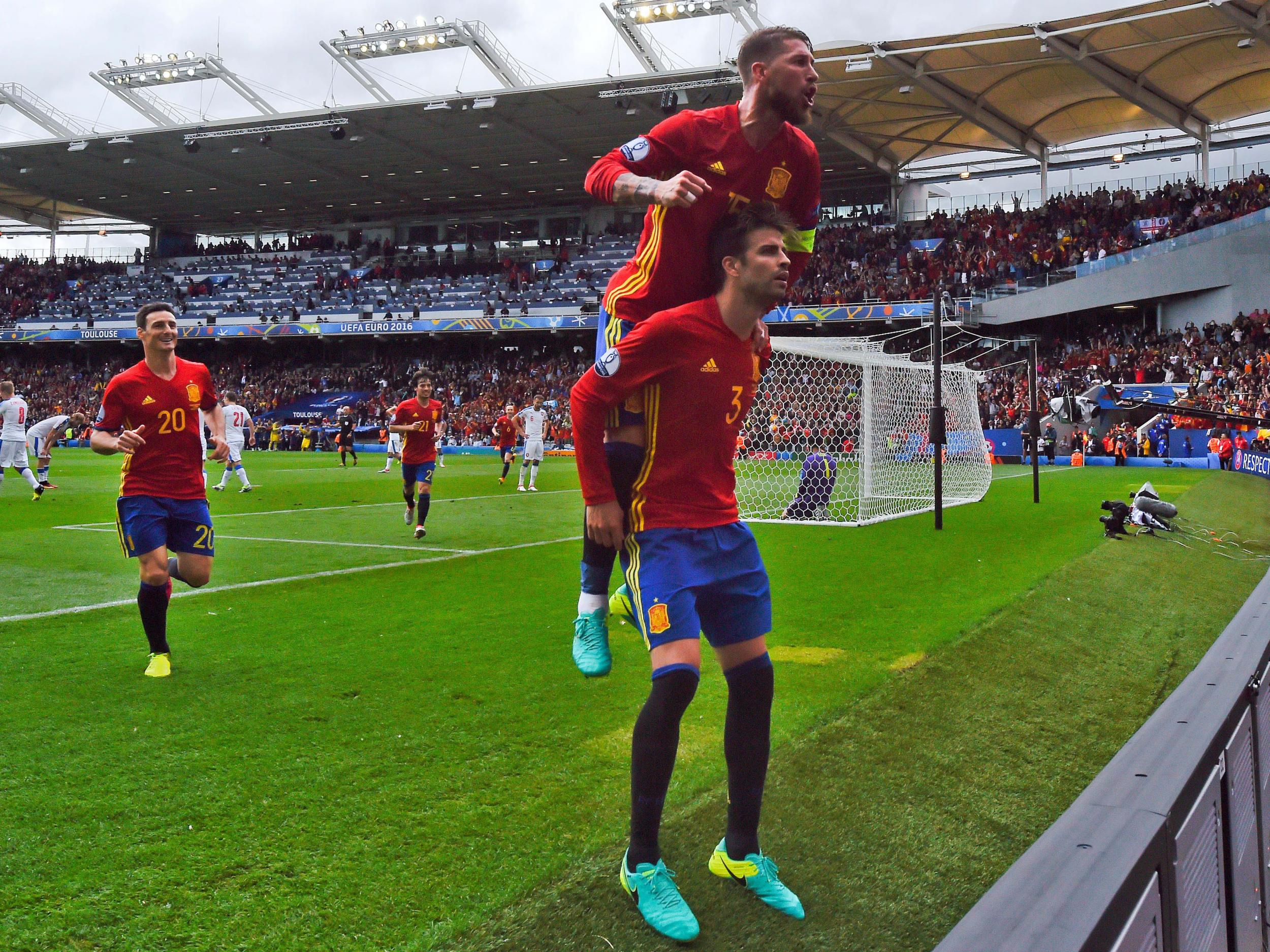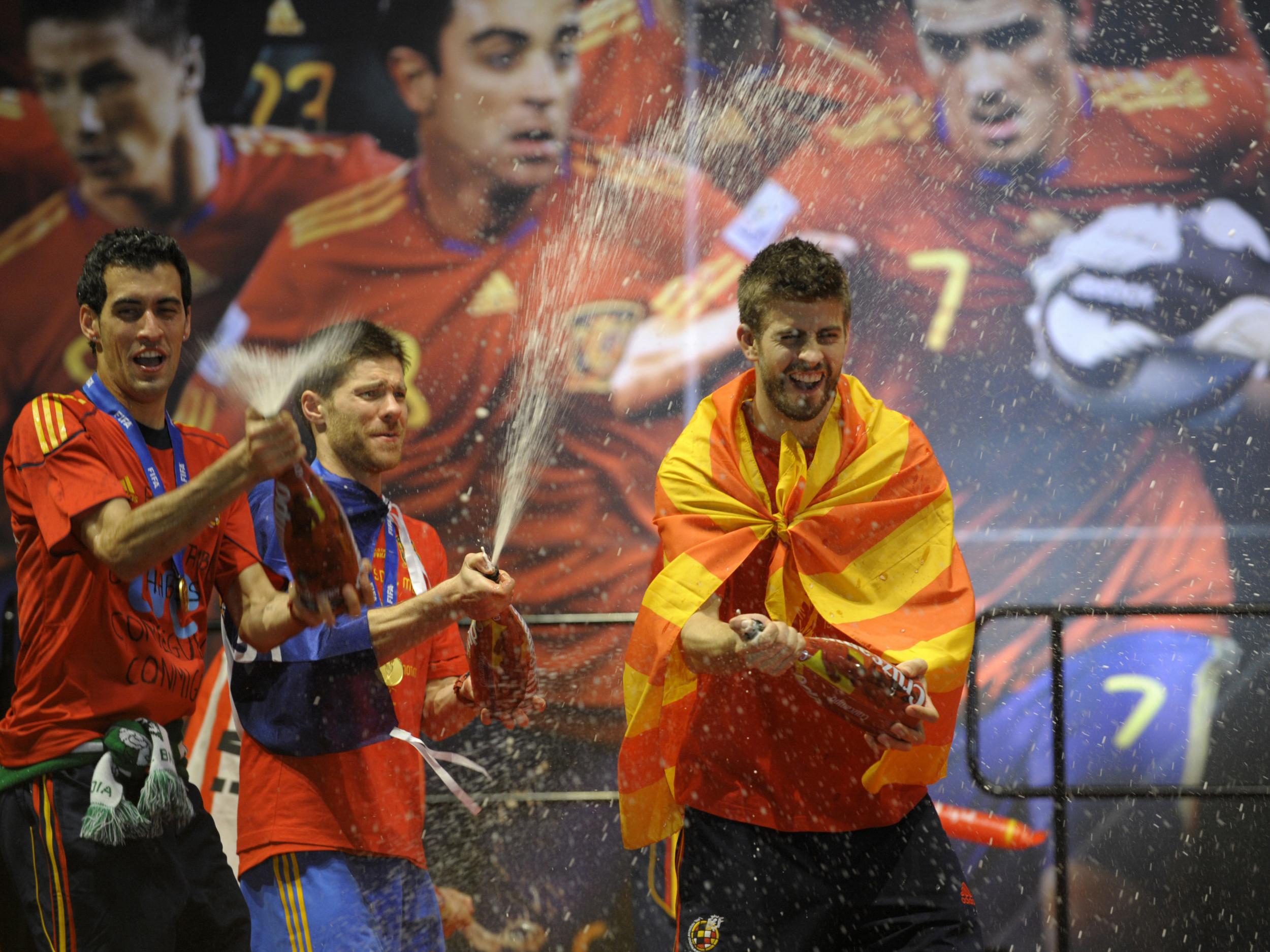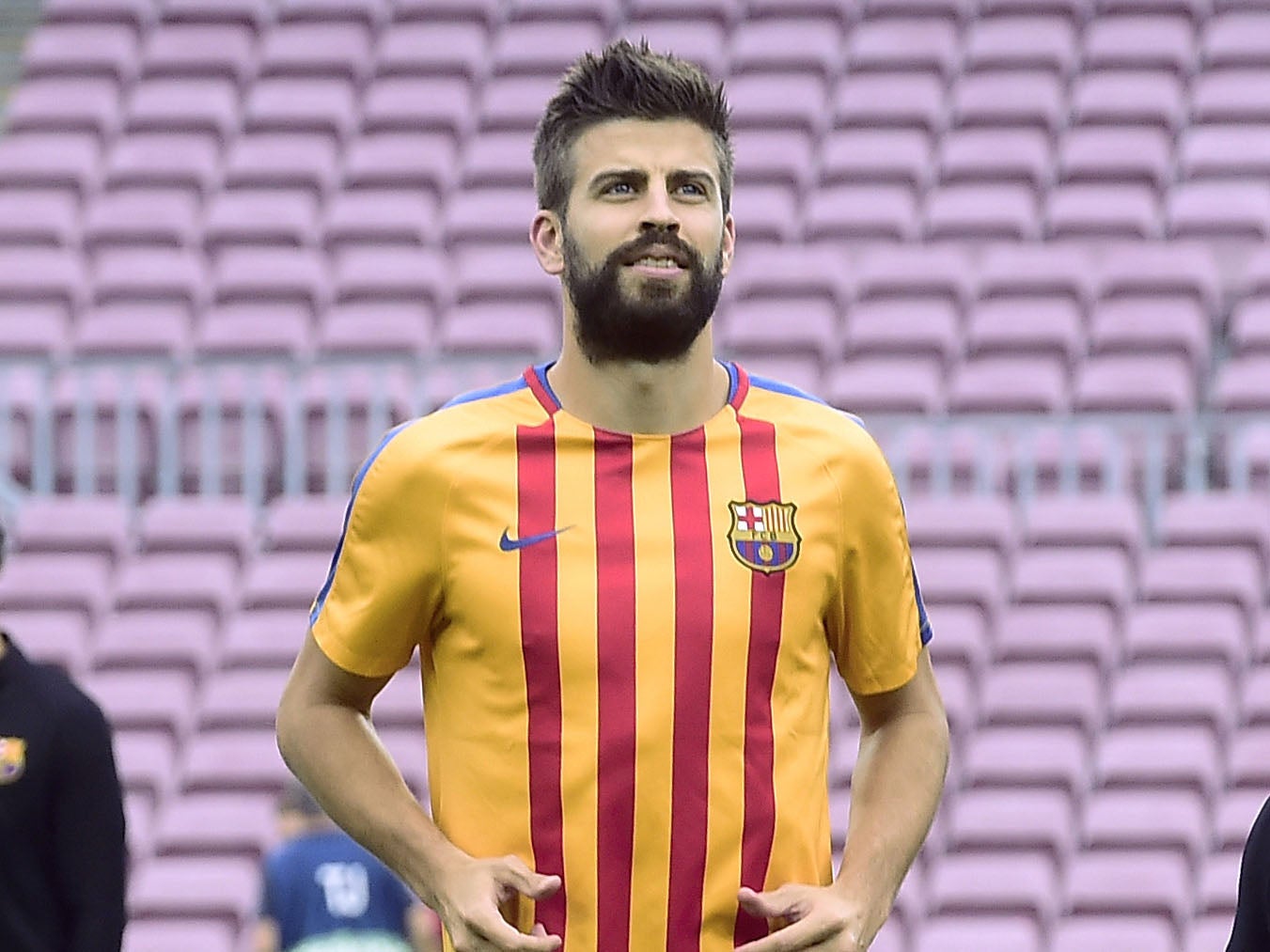The Catalan referendum tears through Spain - and Gerard Pique and Sergio Ramos fall on either side of the divide
Pique has been booed by Spanish fans at training after saying he would be prepared to pull out of the national side

Your support helps us to tell the story
From reproductive rights to climate change to Big Tech, The Independent is on the ground when the story is developing. Whether it's investigating the financials of Elon Musk's pro-Trump PAC or producing our latest documentary, 'The A Word', which shines a light on the American women fighting for reproductive rights, we know how important it is to parse out the facts from the messaging.
At such a critical moment in US history, we need reporters on the ground. Your donation allows us to keep sending journalists to speak to both sides of the story.
The Independent is trusted by Americans across the entire political spectrum. And unlike many other quality news outlets, we choose not to lock Americans out of our reporting and analysis with paywalls. We believe quality journalism should be available to everyone, paid for by those who can afford it.
Your support makes all the difference.The story from Spain - or, just one of many stories from Spain right now - is that the country’s football federation this week phoned Sergio Ramos up, and asked him not to perform his usual captain’s routine of talking to media as he met up with the international squad.
The apparent concern was that any comments could inflame an already difficult situation from the Catalan referendum, especially since he would inevitably be asked about his long-time defensive partner/rival Gerard Pique.
Whatever was on Ramos’ mind will now go unsaid, although there is a much older debate that is also bubbling up again, that hasn’t really been discussed in over a decade.
It is the issue of whether Spain’s many regional identities affect the national team, whether they dilute its potential… its commitment.
It was something that was obsessed over as a reason for the country’s long history of frustrating underachievement and right-out bottling-it at tournaments. The build-up to the 2006 World Cup saw it still discussed fervently, only to naturally cease as Spain embarked on the most spectacular spell of victory any international side has ever known, becoming the first to win three major trophies in a row with Euro 2008, the 2010 World Cup and Euro 2012.
The fact that Pique was a key player for 2010 and 2012, responsible for some vital interventions in agonisingly intense and narrow wins, makes the abuse of him this week by fans frankly pathetic - not least given the farcical way it started around the rapper Kevin Roldan. He has now admitted he would consider quitting the side, even though the very simple fact is that Spain are a better team with him, although that points to the complexity of this entire issue.
For his part, and despite how prominent he has been throughout this entire Catalan process, Pique has never publicly declared his support for independence. He has always stuck to the line that he merely supports the right to choose.
People can take that as they will about his true feelings, but that stance alone reflects how multi-layered and meshed together Spain’s many identities are. The tendency from the outside is to view it in simple black-and-white - or maybe red-and-blue/yellow/green - terms, and believe that Basques are primarily loyal to a Basque identity, Catalans to a Catalan identity but it has just never been so clear-cut. Too many come from mixed backgrounds, and have multiple influences on their identity.
It is perhaps apt that the man who is considered Spain’s greatest ever player sums much of this up. Xavi’s full name is Xavier Hernandez Creus. Hernandez is a historically Spanish surname, Creus a Catalan surname. Similarly, just as much was made of the Catalan players holding up their region’s flag after the 2010 victory, Pedro and David Silva doing the same with the Canarian banner just did not attract the same attention. There was the same local expression, but not the same politics around it.

That helps explain why the issue of regional identities negatively affecting the national team has always been overplayed, why it has been something of a red herring. The stories of certain players through history looking to obscure the Spanish flags on their socks have always been exaggerated, as have the separatist feelings of many of them. The vast majority have been on something of a spectrum rather than specifically regionalist.
An even greater majority have just been professionals, wanting to play well for their team, regardless of who that is.
A world and European champion and leader like Pique shows this better than anybody.
The discussion right now in the immediate aftermath of the landmark events in Catalonia - and undoubtedly fired by how fresh the emotions are - is whether a line has been crossed; whether something has definitively changed. A word being used a lot around the squad ahead of final World Cup qualifiers with Albania and Israel is whether the situation is now “unsustainable”.
Some close to the Pique and Ramos maintain that their relationship is the same as ever, that they have spoken on it before and it is little more than a healthy rivalry that has worked well for the national team.
Their duality has always been an engaging one. Both are similarly charismatic and compelling figures who play in the same positions, but with different identities, different personalities, different backgrounds, and all of that only accentuated by the fact they literally stand at opposite ends of one of the most intense rivalries sport has ever seen.
All of that is also why some around the squad say that any talk of the political issues affecting the team are overplayed, given that there would be no issue with Catalans like Sergio Busquets or Jordi Alba.
The worry is still that the situation could spread, that will only spark more, that it's on Ramos' mind...or that it could again become a more defined Real v Barcelona issue: the Camp Nou players naturally backing their teammate, with Ramos now so conspicuously the leader of a group of young Spaniards.

That is just another side to all of this.
Five of the starting XI in the 2010 World Cup final were born in Catalonia. And, given that eight of the 14 players that ended up on the pitch that night played for Barcelona, the triumph came to be closely associated with Camp Nou, which was a huge factor in Real's policy change. It was embarrassing for them, and why they are now in the midst of this hugely successful pan of bringing in the best young players; why they now dominate the national team.
There is still no centre-half like Pique, though.
The general team dynamics may remain unaffected by the disparity of Spain but, if the Barcelona star were to actually leave the team as a result of all this, it would have undeniably have affected the team.
That would be another landmark step in this difficult week.
Join our commenting forum
Join thought-provoking conversations, follow other Independent readers and see their replies
Comments